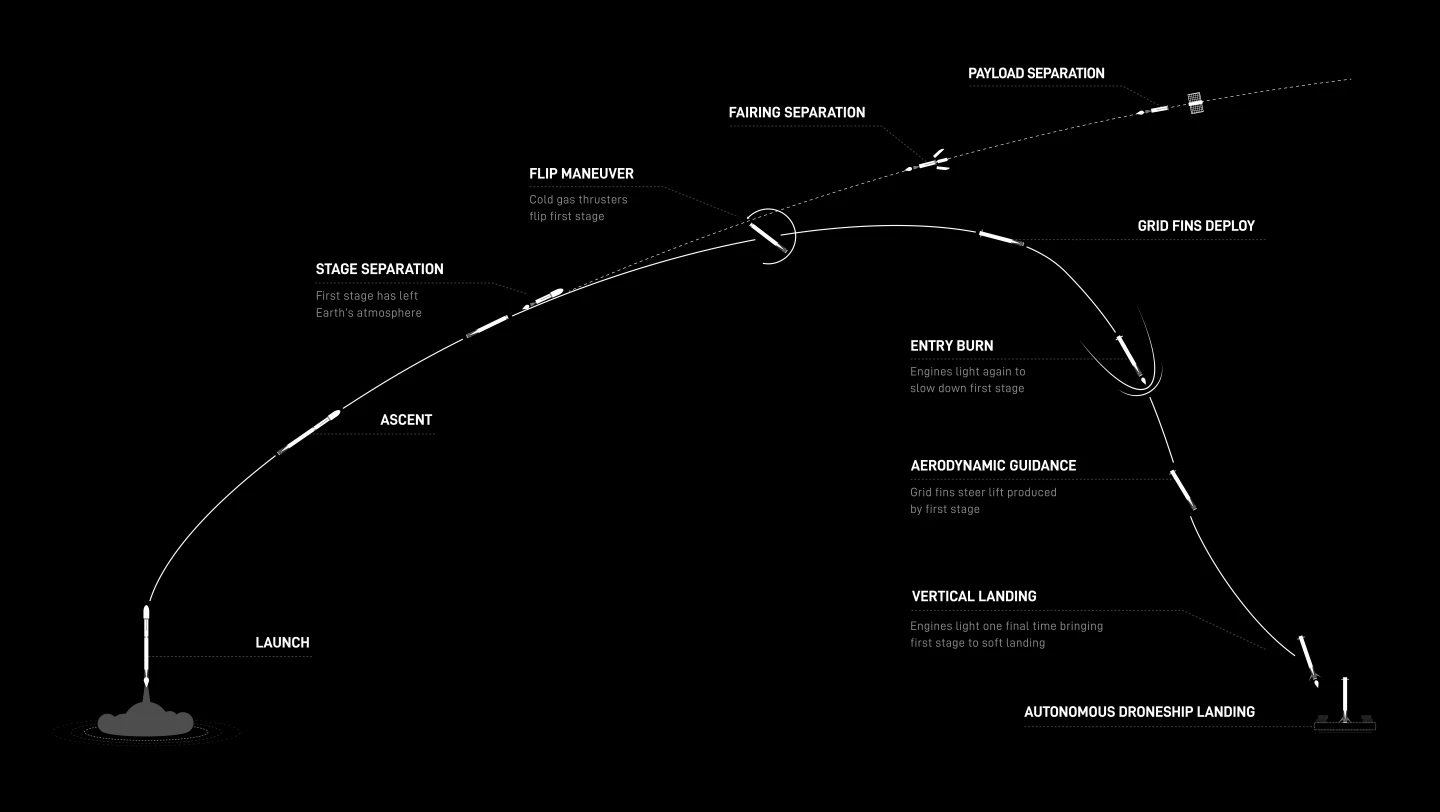SpaceX's latest orbital mission has set a new record for the most spacecraft launched by a single rocket at one time. On January 24, 2021 at 10:00 am EST, the Transporter-1 mission lifted off atop a Falcon 9 booster from Space Launch Complex 40 at Cape Canaveral Space Force Station in Florida with 143 satellites aboard.
Today's launch was not only a record setter, it also allowed SpaceX to let out a collective sigh of relief. Transporter-1 was originally scheduled for launch on December 16, 2020, but was scrubbed five times – the latest on January 23 due to bad weather.
This time, the launch went off without any significant problems. One minute and 12 seconds into the flight the Falcon 9 passed through the moment of peak mechanical stress (Max Q) and the first stage main engines shut down at the 2:28 mark with second stage separation eight seconds later followed by the second stage engine firing.

Meanwhile, the fairing that protected the payload separated and fell away at two minutes and 51 seconds. These fell back to Earth for a splashdown and ship recovery, and the first stage made a powered landing on SpaceX's "Of Course I Still Love You" autonomous barge stationed in the Atlantic Ocean.
The record 143 satellites deployed were the first to fly under SpaceX's SmallSat Rideshare Program. Multiple satellite launches are not new, nor is having these launches include a number of small spacecraft. However, the usual practice is for the smaller satellites to fly along with a large primary payload. This brings down the costs, but it limits how many satellites can be carried, and launching the small satellites can be delayed if there is a hold up with the primary payload.
For the SmallSat Rideshare Program, SpaceX is offering to launch missions made up entirely of small satellites. For Transporter-1, the Falcon 9 carried 133 US government and private satellites, including CubeSats, microsats, and orbital transfer vehicles to carry clusters of satellites to specific orbits.
The launch also included an additional 10 SpaceX Starlink satellites, which are the first of the growing constellation to be placed in polar orbit. The Starlink system is designed to provide a low latency, broadband, global, internet system.
The video below recaps the launch and satellite deployment.
Source: SpaceX






